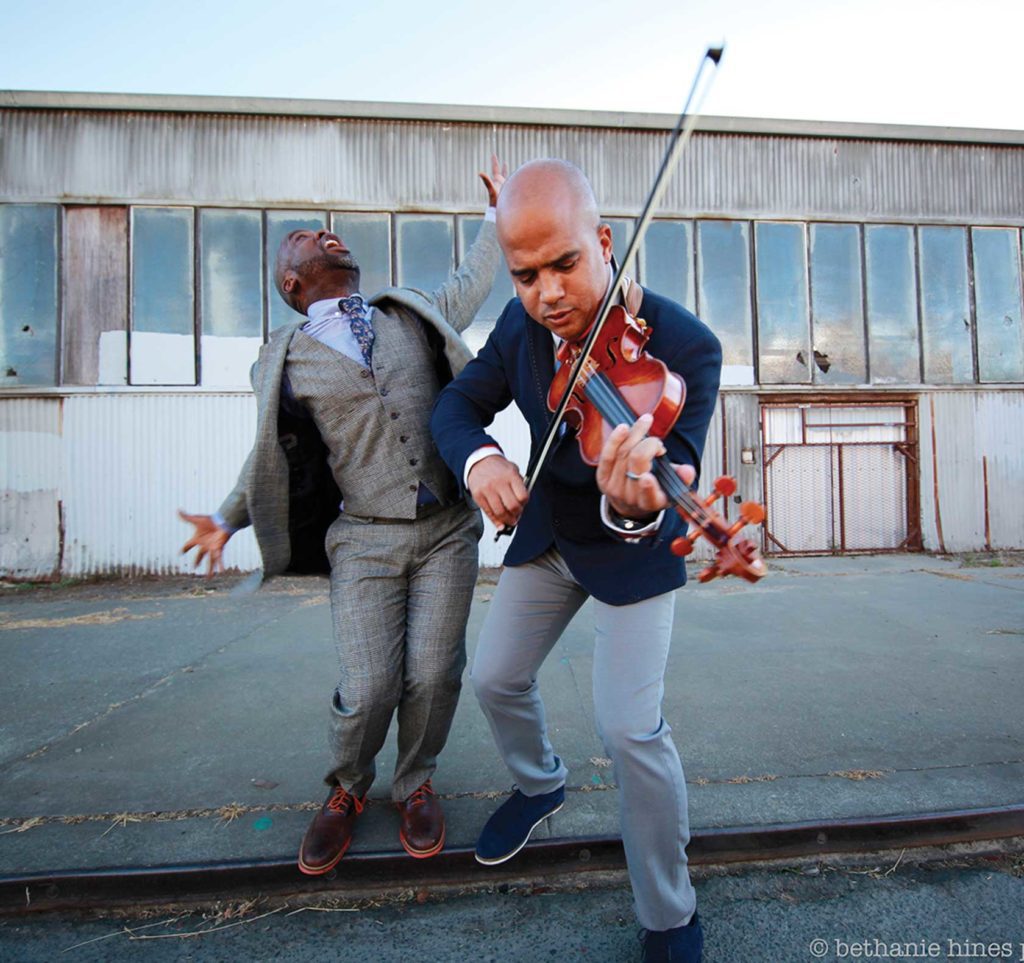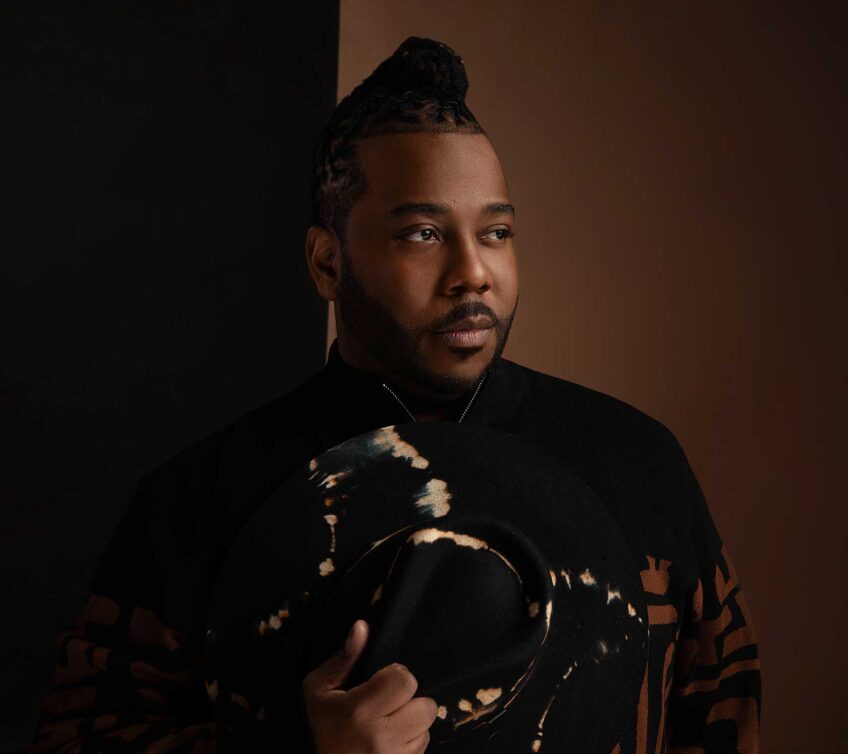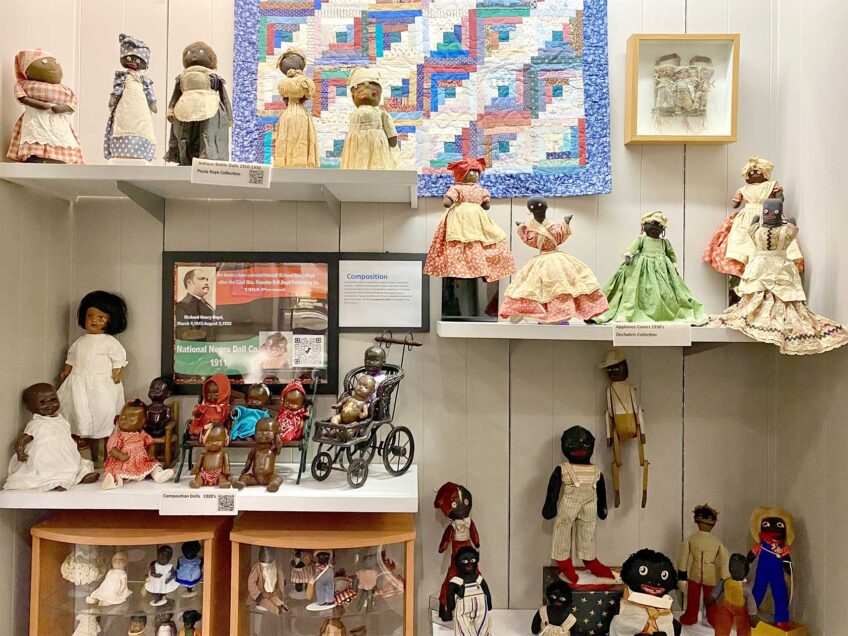‘The Just and the Blind’ has Boston premiere
Inequity, police violence seen through lens of Black fatherhood

On April 1–2, poet and writer Marc Bamuthi Joseph will perform a stirring multimedia performance exploring policing, inequity and Black fatherhood. Presented in partnership with Celebrity Series of Boston at the Emerson Paramount Center, “The Just and the Blind” is a reflection of Joseph’s personal experiences with inequity and his desire to change things for his son.
Joseph developed the full sensory experience with Boston area artists Daniel Bernard Roumain, who composed and performs the accompanying music on piano and violin, and Débo Ray, who brings her powerful vocals to the production. The music mines Black history to draw on the words and themes of leaders like Angela Davis and the Black Panthers.
“A piece like this is a reminder that Black men, specifically, continue to be murdered and treated unjustly. That we’re all culpable, that we have a role to play,” says Roumain. “I would describe it as a Black radical moral immersive experience.”
“The Just and the Blind” unfolds in a series of scenes during which Joseph recounts various encounters he’s had with law enforcement and how those experiences color his relationship with his son, who he knows is walking into similar territory. Joseph’s mastery of language is at the root of this performance; his poignant and at times stinging poetry and prose guide the audience through this art experience.
The pieces Ray sings are drawn from the words of powerful Black protest leaders. She channels the emotions of centuries of resistance. “What I’m trying to convey with that,” she says, “is a sense of empathy, deep, deep empathy, for it to resonate with everyone who hears it, no matter where they come from, what their background is or their lineage.”
While spoken word flows and music plays, audience members also see dancer King Havoc manifesting emotions in movement and snippets of films, animations and projections layered onto the scene. There are many moving parts in this one-hour performance. Audiences also will hear the words of journalist Lisa Armstrong interviewing an incarcerated man and see the bold photographs of Brittani “Brittsense” Sensabaugh, among other artistic influences.
The purposeful, choreographed chaos of this performance mirrors the constant hypervisual, overstimulated nature of the contemporary world. Media is all around, including videos, social media and shared stories of police violence. In many ways, that inundation has provided awareness and spread outrage, strengthening resistance, and at the same time, it acclimatizes online audiences to violence and injustice.
Roumain notes that while awareness of police brutality is much greater than it was in the days of Rodney King’s assault, there is still much work to be done. He hopes audiences for “The Just and the Blind” are further awakened to the racial inequity in the U.S. “I hope they are a little more aware of the plight of Black men, the plight of Black folk,” says Roumain. “I hope they come away with the urgency of equity.”


![Banner [Virtual] Art Gallery](https://baystatebanner.com/wp-content/uploads/2024/04/Cagen-Luse_Men-at-store-e1713991226112-150x150.jpg)

![Banner [Virtual] Art Gallery](https://baystatebanner.com/wp-content/uploads/2024/04/Cagen-Luse_Men-at-store-e1713991226112-848x569.jpg)

